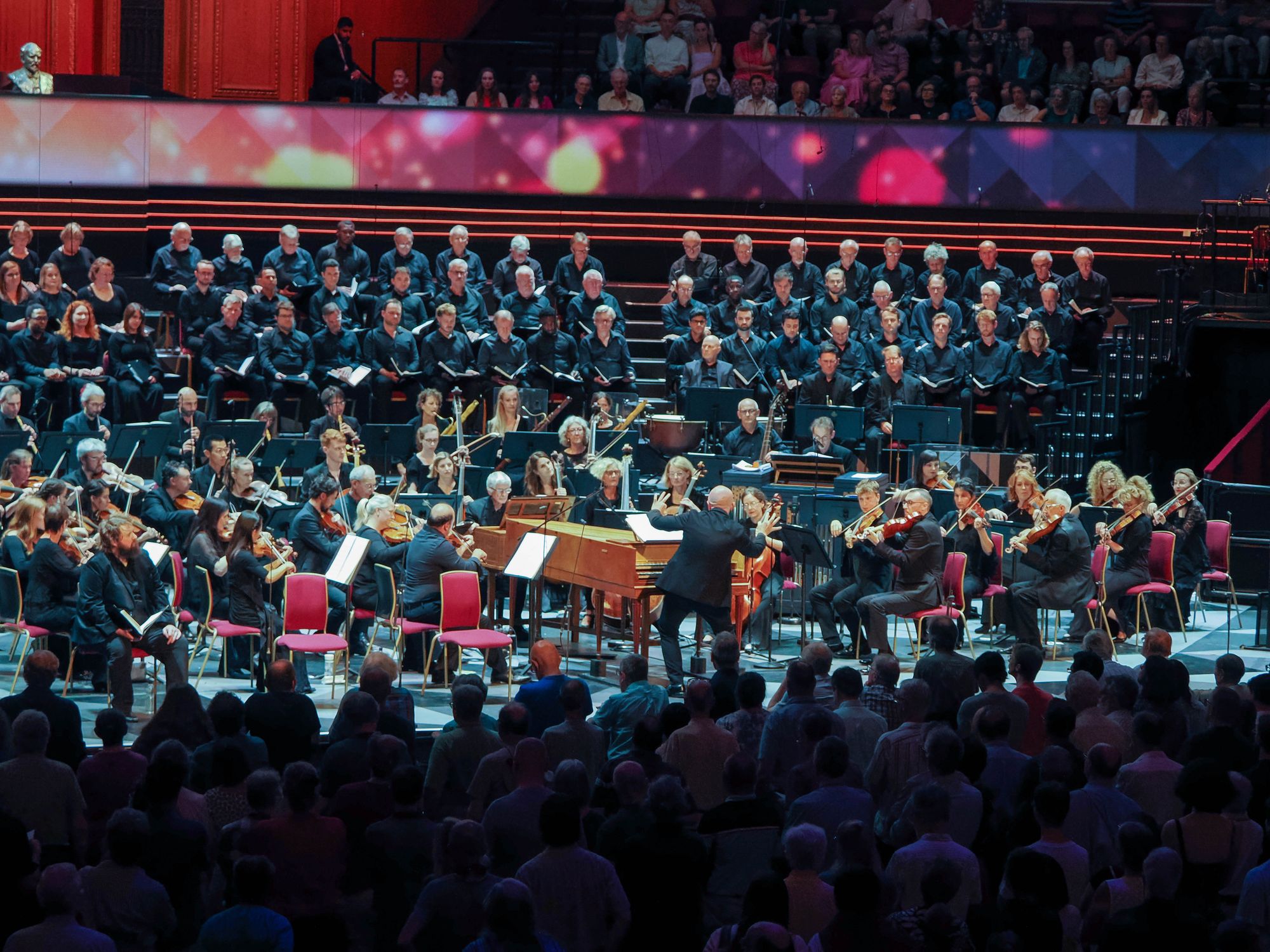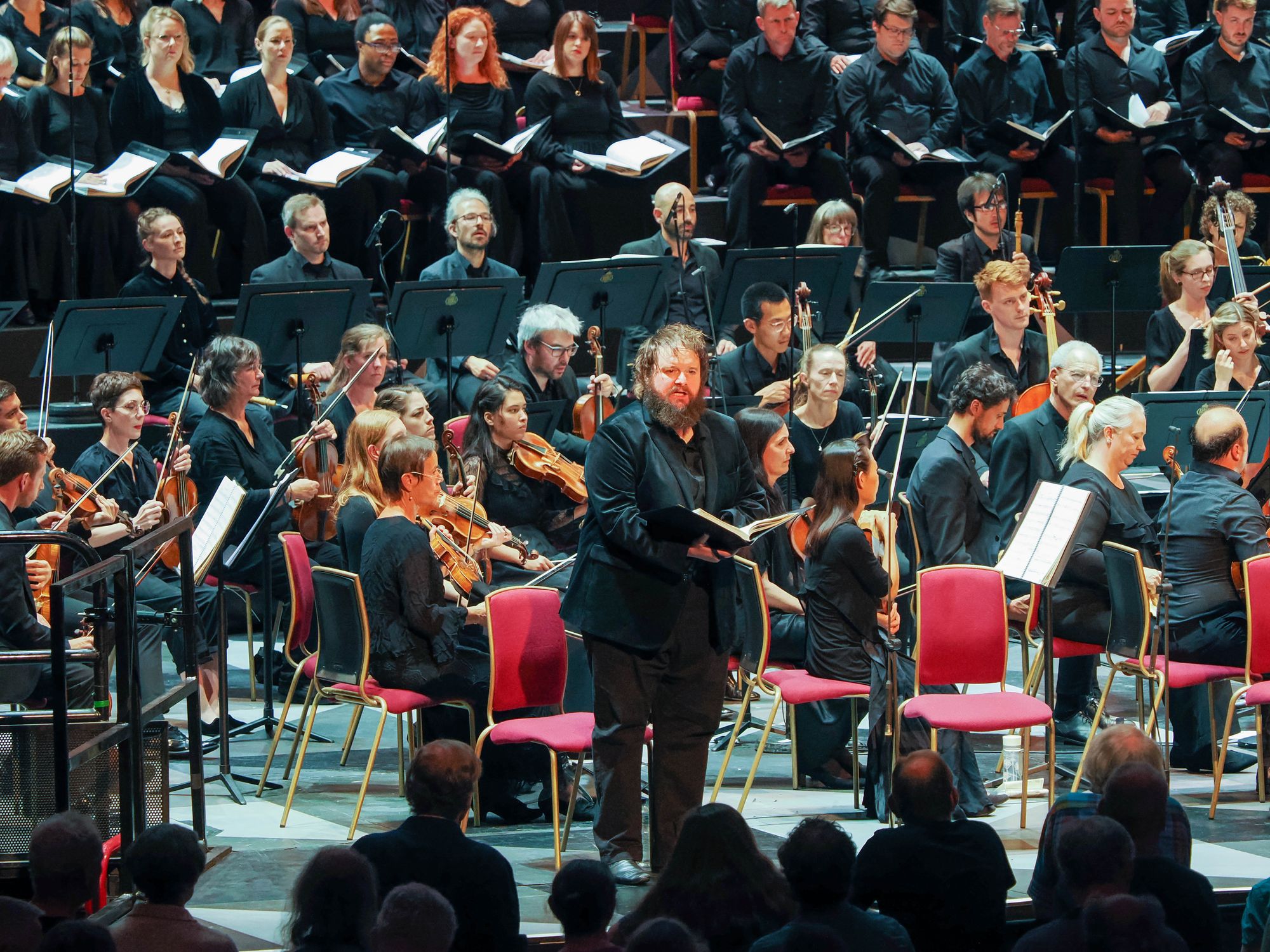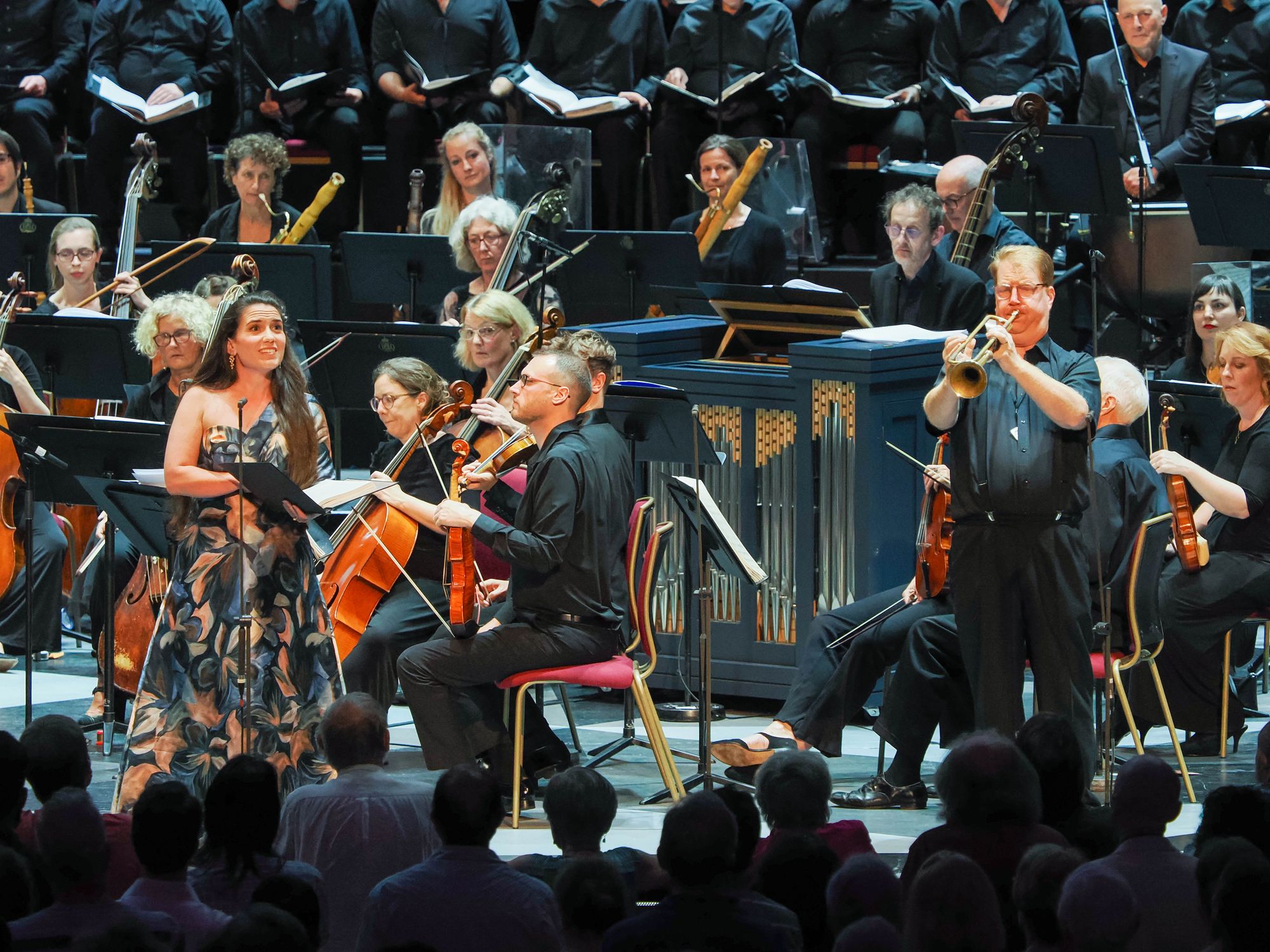Handel's Samson at the Proms

PROM 50: Handel Samson, HWV 57 (1741-2, heard in the revised 1743 version).
Allan Clayton (Samson); Jacquelyn Stucker (Dalila); Joélle Harvey (Israelite Woman); Jess Dandy (Micah); Brindley Sherratt (Harapha); Jonathan Lemalu (Manoa); Will Pate (Messenger); Philharmonia Chorus; Laurence Cummings (harpsichord / director). Royal Albert Hall, 23.08.2023
It is Milton’s 1671 dramatic poem Samson Agonistes that forms the basis for the text of Handel’s three-act oratorio Samson – a work famous principally for its very final aria (‘Let the bright seraphim’). Handel set Milton three times: L’Allegro, Il Penseroso ed Il Moderato (1740); A New Occasional Oratorio (1746) and the present work, composed in the same summer as Messiah. The first performance was on February 18, 1743, and was a success. The text was adapted by Newburgh Hamilton, which involved some new lines as well as adaptations from some 13 of Milton’s own works and the introduction of a new character (Micah), who sings the words attributed by Milton to an Israelite chorus. Like Samson, Milton was blind, and there is a darkness to Milton’s work; Hamilton tweaked this to provide a trajectory from darkness to light.
The edition used in this Proms performance was that of the later performances of Samson in its original run, after some cuts and revisions (it is still not short, but certainly shorter than the BBC claimed in advance – the performance finished at just after quarter to ten).
The character Samson is already blind at the opening, and has been captured by the Philistines (so he has already, pre-curtain up as it were, had a haircut), His journey here is one to the realisation of himself as a channel for the God of the Old Testament, and it is brilliantly structured by Handel.
This is not Samson’s first outing at the Proms: but it might well be its most dramatic. ‘Theatre of the mind’ is how Laurence Cummings describes it in a Radio3 interview, and Handel knew a thing or two about the theatre, whether in the mind or in the flesh. All credit to Cummings for seeing, hearing and realising that Biblical journey to light. Handel’s music is, as ever, inspired throughout and this performance felt not one semiquaver too long – indeed, it was richly satisfying on a profound level, the result of a combined effort from soloists, players and chorus.
And it was a chorus, not a choir: the massive Philharmonia Chorus, looking (and sounding at times) like oratorio choruses of old, pre-HIP days. Imposing though the sight of so many singers might have been, it felt too much, too heavy, and lines lost definition (a cardinal sin when it comes to Handel’s fugal writing – a particular shame in the angular subject of the Chorus of the Israelites, ‘Then shall they know’. They are requested to sing ‘at a distance’ for the final act choris ‘Great Dagon has subdued our foe’; not really.
Tenor Allan Clayton continues to impress. He took the title role in Handel’s Jephtha in Prom 50 of the 2019 Proms, and his Handelian credentials only grow with the present assumption. Every word of Samson’s was relished, every emotion projected. The sheer level of care he lavished on the detail of his first recitative, ‘This day, a solemn feast to Dagon held’ was representative of his entire performance, while the beauty of the air, ‘Total eclipse! No sun, no moon, all dark amidst the blaze of noon!”’ was remarkable. Even his voice combined with the beautiful held within the recitative ‘My griefs for this forbid mine eye to close,’ the effect was pure magic.

Clayton’s interactions with Dalila in the second act found the two singers on opposite ends of the Albert Hall stage, reflecting the emotional distance between them (‘How cunningly the sorceress displays / her own transgressions’). Jacquelyn Stucker, making her Proms debut, rightly portrays her character as one quite different from the seductress how cut Samson’s hair; there is an acknowledgement of Dalila’s complex situation, and with it a deepening The lovely air, ‘With plaintive notes and am’rous moan’ was illuminated by Stucker’s warm-sounding voice, while she brought a palpable freshness to the recitative, ‘Forgive what’s done, nor think of what’s past cure’; and how she realised the crisp acciaccaturas of the air with chorus, ‘To fleeting pleasures make your court’. Only in the duet between Dalila and Samson, ‘Traitor to love! / Traitress to love!‘ could Stucker have sounded angrier.
Dalila’s mid-oratorio duet with the Philistine Woman (‘My/Her faith and truth, oh Samson, prove’) found American soprano Joélle Harvey and Stucker’s voices complementing each other perfectly, Handel’s tumbling imitations sheer joy. The role of the Philistine Woman pretty much bookends the drama, beginning with ‘Ye men of Gaza” early on (No. 4 in act 1) and returning at the end of the final act (the Chorus and Soloists’ ‘Glorious hero’), leading to the iconic ‘Let the bright Seraphim’. Harvey was radiant in all of her contributions, Harvey is a natural Handelian (indeed, she too the title role of Semele in Glyndebourne this year).
The only slight disappointment in the cast was the Micah, sung by contralto Jess Dandy, mostly too quiet in the hall (and even in broadcast – ‘Then long eternity shall greet your bliss’ was particularly afflicted); and while not overtly deficient in diction, she was less clear than her peers. Interestingly, I found eactly the same issue in her contribution to the AAM’s Messiah last December at the Barbican (review). Dandy does have a nice and velvety voice, though, and she certainly has the low register required (unsurprisingly, given the text, at the words ‘From highest glory fall’n so low’ in the air, ‘O mirror of our fickle state!’). The act 3 ‘Ye sons of Israel’ could certainly be more touching.
Jonathan Lemalu rarely disappoints, and his portrayal of Manoa (Samson’s father) contains moments of highest beauty (the accompanied recitative ‘Oh miserable change!’). Lemalu’s disction was a dream.
It has been said that the Milton’s giant, Harapha, represents Samson’s past by embodying the qualities Samson used to carry. Brindley Sherratt’s stentorian (but derfnitely not stolid) gravitas in this role was remarkable, and perfect for the character. Never once have I heard this remarkable singer disappoint.
A word now for a singer who is a bit of a discovery, the bass Will Pate from the Philharmonia Chorus (and the only solo singer with no biography in the booklet). He appears in the third scene of the second act as ‘Messenger (an Israelite officer),’ and his sound, diction and phrasing were perfectly judged. Pate’s previous solo outings appear to have been as part of a 2021 Dido and a 2021 Partenope; let’s hope for more. He’s a bit of a find ...
Instrumentally, all was almost perfect. A pity that what was not, happened in the Overture: raucous, uncontrolled, approximate horn playing (it improved when the three reduced to two later in the oratorio). Balancing that was the sheer perfection of the three trumpets, crowned by David Blackadder’s stage-front obbligato in ‘Let the bright Seraphim’.

Good to have Bojan Čičić as leader, and Stephen Farr as a superb organist, playing on a Robert Jennings 2019 instrument*. And how Cummings had the orchestra pulsated with life in Samson’s final act air, ‘Thus when the sin from’s wat’ry bed’ before the final piaissimo of ‘Each fetter’d ghost ships slips to his sev’ral grave’. At the other end of the dynamic spectrum, the ‘Symphony of Horror and Confusion’ definitely made its mark (‘Heav’n! What noise!’ exclaims Manoa ...), while the emotional impact of the interestingly entitled ‘Dead March’ was total (this is a funeral procession for Samson towards his ‘monument,’ where he will be surrounded by his trophies, ‘and great acts enroll’d / In verse heroic, or sweet lyric song,’ as Micah puts it). Interestingly, the texture in the march of two flutes and organ somewhat bizarrely seemed to remind me of ocarinas (the Prom’s proximity to the recent Les Siècles LIgeti and Mozart evening I am sure had much to do with this!).
A phenomenal evening that, despite the odd hiccough, attained a level of musical excellence available to very few performances, anywhere. These forces would surely provide a recording of great note – I am reliably informed that sadly there are no plans for a release, however. Perhaps a petition at change.org is in order …
As a little bonus, here’s a link to an article on article on total eclipses: https://online.ucpress.edu/jm/article/40/1/34/195228/From-Milton-to-Hamilton-and-HandelTotal-Eclipse
*organ spec: Stopped Wood 8, Principal 4, Chimney Flute 4 & Fifteenth 2.
